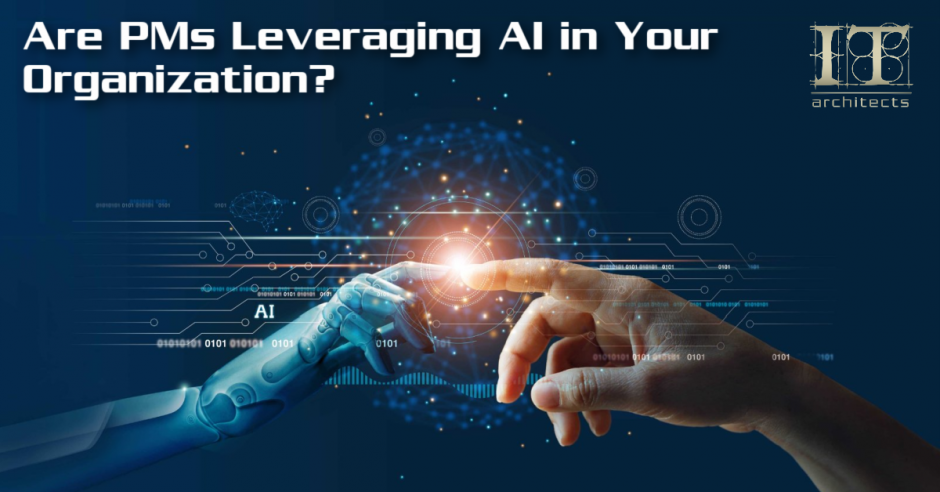Marcus Udokang, IT Consultant
December 29, 2020
Some fear the role of the Project Manager may be eliminated as the use of Artificial Intelligence (AI) becomes more prevalent in the workplace. Others see the evolution of AI as creating new opportunities, allowing the Project Manager to transform their role to focus on more critical and crucial responsibilities.
Is “AI” just a new buzzword of the week? To some, it may be so. Or when you hear “AI” do you envision the Terminator or iRobot. Or do you think of half-human half machine-like RoboCop or Bionic Man? These overly intelligent machines are as mythical as the cyclops or leprechauns. Hollywood movies have certainly added to the myth of the super machine thinking and acting like a human, replete with human emotions; conscious, forgiving, understanding, and filled with empathy. Well, that’s the world of make-believe. The real world is far from this scenario and probably will not exist within our lifetime.
AI in the business world is something tamer, and less threatening. It refers more to robotic functions such as operations, data collection, tracking, and reporting; those repetitive tasks which hold far less value, but which need to be accomplished within a business. In complex projects AI tasks save time and improve data accuracy, thus allowing PMs better interpretation of the data. Automating workflows, predicting risks, eliminating human bias, preventing cost overruns, or digging deeper into big data for real-time insights, are all tasks which allow the PM to spend more time on the human side of a project: the business, stakeholders, and customers. AI allows the PM to provide more succinct strategic advice to the business, to be a more substantial leader providing value outcomes, rather than simply being a manager. AI can more effectively guide PMs on where to focus their efforts, thereby more accurately increasing the potential for project success.
AI is not a threat to project management jobs, but a way to spend less time managing and more time doing those tasks that add true value to a business. Project Manager’s soft skills like communication, critical thinking, emotional intelligence, leadership, and understanding the needs of stakeholders, are more valuable and more marketable than ever, and very much in demand in the world of AI; skills currently void within any robotic AI machine.
Since the core of the project management profession is not easily transferrable to a machine, PMs should not be fearful of AI inadvertently hijacking their jobs. PM jobs differ widely in complexity and encompass unforeseeable or taxing challenges that can not easily be tackled by AI. This is AI’s limitation. It is relegated to recognizing patterns within data and making conclusions or forecasts based on those patterns. Therefore, AI is optimal for repetitive, predictive, or computational tasks. In other words, AI is more like a tool to enhance the project management field, rather than to displace it. Imagination and adaptability is far more fluid within a Project Manager than within AI machines. If anything, the adoption of AI in projects will encourage the PM to embrace techniques that will sharpen our soft skills, making us even more marketable.
The introduction of automation during the industrial revolution in the 18th and 19th centuries gave way to faster manufacturing processes. This was enough to frighten many tradespeople during that period, who felt their jobs would be lost to machines. The automobile modified transportation, making the use of horses rather obsolete. The introduction of email forever changed the demand for posting letters in the mail. Each one of these transitions involved some form of mechanization, which altered the demands for certain jobs. Rightfully so, AI is yet another stage in this move toward more encompassed automation within the workforce. Like in the past, each time there was a dramatic shift in mechanization, new jobs were created, and many current jobs were enhanced, making them even more in demand. But, throughout this change, there was always someone who needed to plan, manage, monitor, and control the work and make crucial decisions on the job. The role of the Project Manager will continue to evolve, and will undoubtedly play a pertinent and pivotal role in the world of AI, just as it has done throughout the history of automation.
Mr. Marcus Udokang is an IT Consultant, writer and presenter specializing in project management and business analysis, specifically business process management and requirements analysis, and has worked in various industries including Financial Services, Oil and Gas, and IT training/education. Marcus has written articles focusing on best practices and industry experience to solve business problems for various publications including PM Times, Project Management.com, BA Times, BA Fringe, Medium, and others. If you require further information, Marcus can be reached at info@itarchitects.ca or 403-616-7109.


